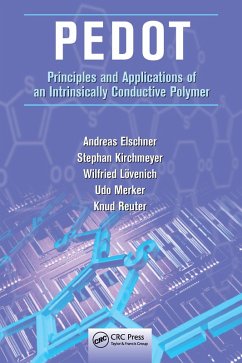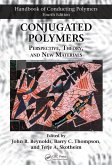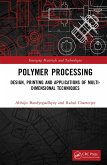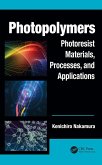While there is information available in handbooks on polythiophene chemistry and physics, few if any books have focused exclusively on the most forwardly developed electrically conductive polymer, Poly (3,4-ethylenedioxythiophene)-otherwise known as PEDOT. This resource provides full chemical, physical, and technical information about this important conducting polymer, discussing basic knowledge and exploring its technical applications. Based on information generated through academic research as well as by industrial scientists, this book provides a complete picture of the experimental and the practical aspects of this important polymer.
Dieser Download kann aus rechtlichen Gründen nur mit Rechnungsadresse in A, B, BG, CY, CZ, D, DK, EW, E, FIN, F, GR, HR, H, IRL, I, LT, L, LR, M, NL, PL, P, R, S, SLO, SK ausgeliefert werden.









